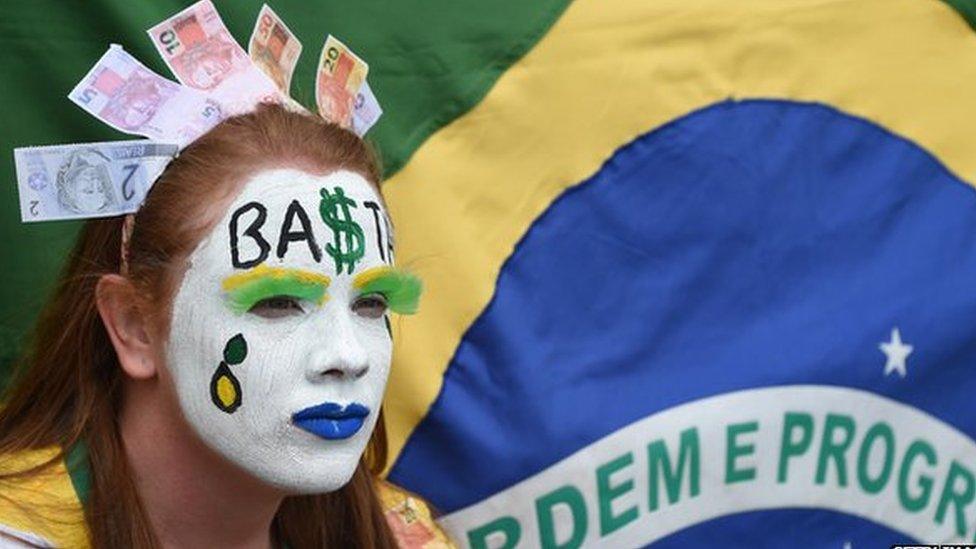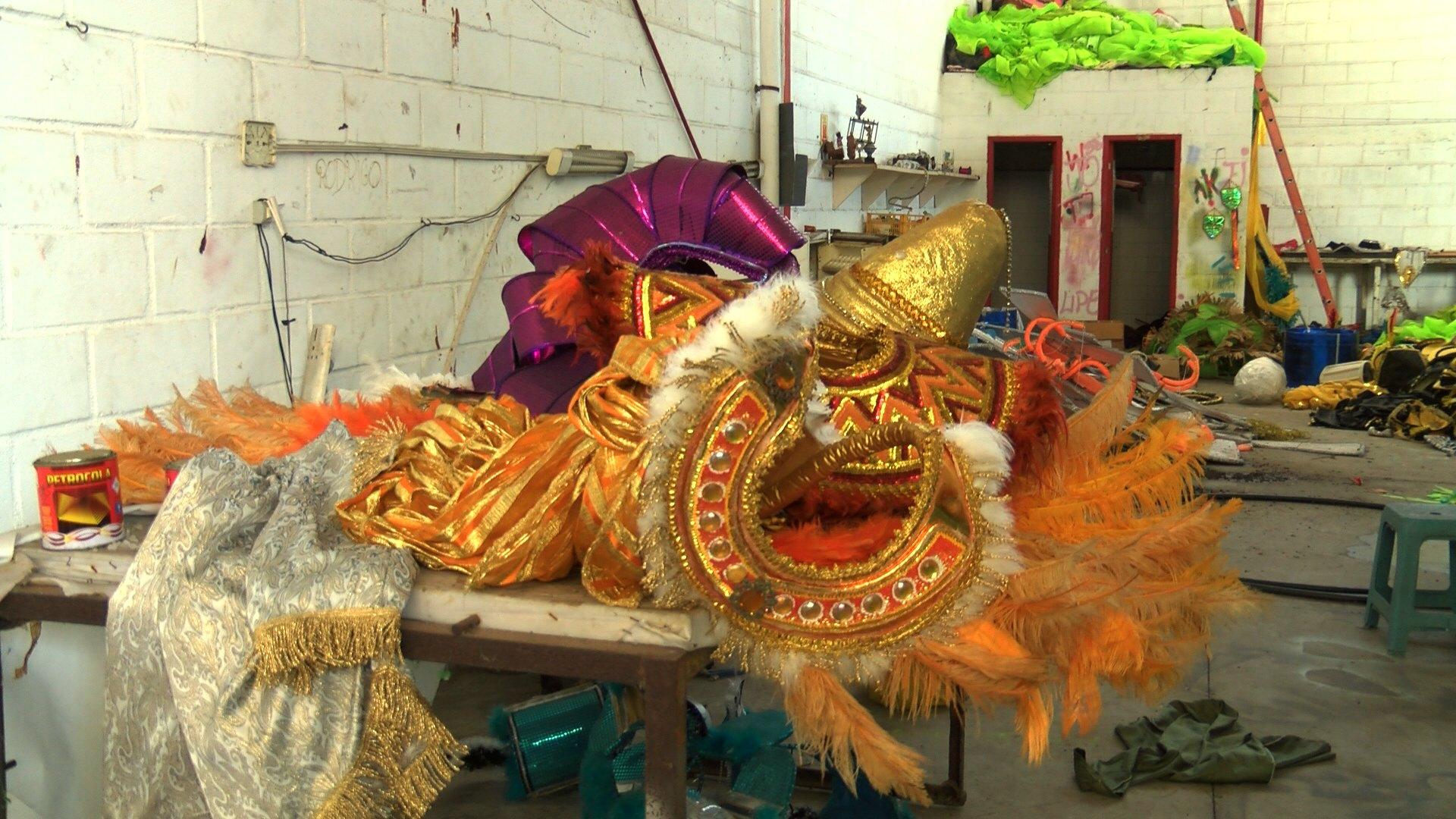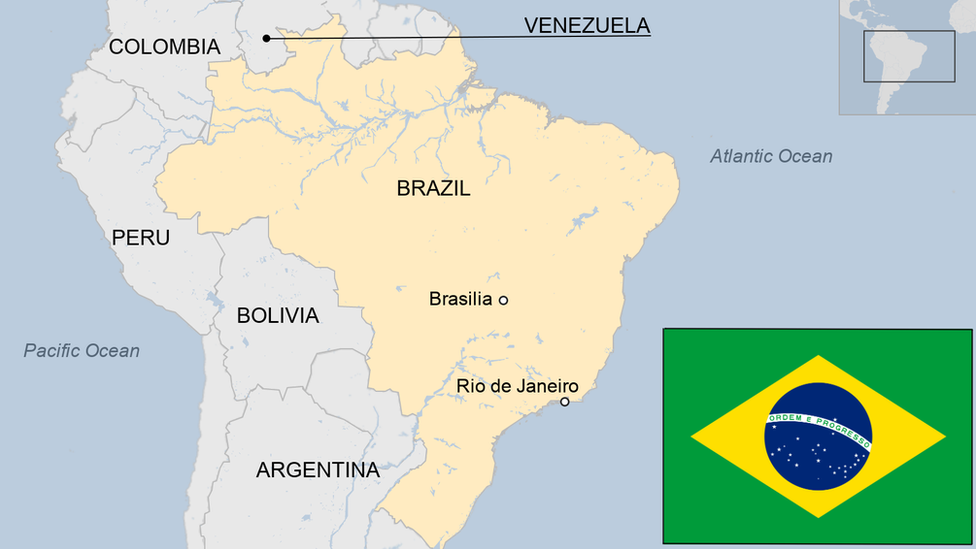Brazil's economy shrank 3.8% in 2015
- Published

Brazil's GDP fared worse than almost any other major economy in 2015, contracting by 3.8%, according to the national statistics agency IBGE.
Economic growth in the world's seventh-largest economy has fallen sharply in recent months.
This was due partly to low commodity prices and sluggish global growth.
But political paralysis has hampered Brazil's efforts to tackle its economic problems, including a budget deficit that has reached 10.8% of GDP.
President Dilma Rousseff is trying to head off the opposition's efforts to impeach her over alleged accounting irregularities, which means she cannot afford to alienate supporters in her Workers' Party by cutting spending or raising taxes.
Investigations are also continuing into a high-level bribery and corruption scandal involving major construction projects. Ms Rousseff's predecessor as president, fellow Workers' Party politician Luiz Inacio Lula da Silva, is one of the people under investigation.

Analysis: Andrew Walker, economics correspondent
What a contrast with the optimism of the 2000s. That was when the term Brics was coined, covering the largest emerging economies, including Brazil, which were seen as major contributors to global economic growth.
Among the group today, India is still performing strongly, but China has slowed - and many economists say by much more than the official figures suggest.
Russia's economy contracted by a similar amount to that of Brazil last year, and South Africa - a later addition to this group - managed a very lacklustre 1.3% growth last year.
These figures, external do pose the question: is this dip in emerging economies' performance just that - a temporary dip. Or is it a longer-term transition to slower growth?
Some factors, such as Brazil's political crisis, may pass, but on the wider question for the emerging economies, the jury is still out.

Inflation surge
Brazil's economic performance last year vies with that of Russia as the worst in a major economy for 2015. Official figures for Russia's GDP last year have not yet been released.
It was also Brazil's worst set of figures since 1990.
Analysts say Brazil is now caught in a classic case of stagflation - a combination of high inflation and a recession.
On Wednesday, policymakers at the country's central bank voted to keep the benchmark Selic interest rate at its current level of 14.25%.
High interest rates have traditionally been used in Brazil as a policy tool to keep inflation in check. But inflation has surged in any case, now standing at 11%, while high rates are hurting businesses.
"While we don't think Brazil is on the cusp of a fiscal crisis, the position is fragile," said emerging markets economist Edward Glossop at Capital Economics.
"If nothing else, it is facing an extended period of budget austerity - and the longer the government fudges or delays the necessary adjustment, the more painful it will be."
- Published3 March 2016

- Published5 February 2016

- Published2 June 2023
